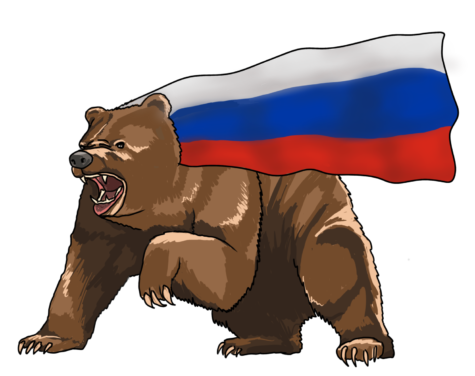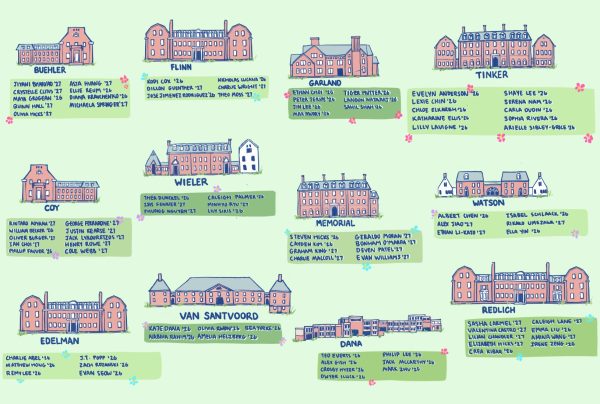Three Untold Stories of Russia’s War on Ukraine
Human suffering is interpreted through the lens of every individual experience. When we hear stories of people in pain or grieving, our mind naturally makes associations with pain that we know, places that we’ve seen, and faces that we associate with ours. Although we can try hard not to, in our society, we interpret the pain of others through ourselves. It’s for this reason that we often ignore others’ pain if we don’t know their stories.
A story of a single mother murdered in a city will bring tears to people’s eyes, bring people to the streets, bring outrage to the hearts of those reading, especially those who associate themselves or others they love with the experience that she must’ve gone through. A story of 1000 people murdered over the course of a year will cause no such thing. Large numbers just become abstract. All 1000 of them could be equally struggling single mothers, but you don’t know – or really care. They’re strangers. So are the 3,000,000 people that have fled Ukraine. The 250,000 that have fled Russia. The 20,000 and more that have died since the conflict started. They’re strangers. It’s sad, yes. But isn’t it natural that, eventually, apathy will take over? Slowly, the public is going to care more about their gas bills and their health insurance than the statistics on people dying in a faraway corner of the world.
Bridging the gap between knowing and caring requires that familiarity and association that I’ve talked about before. It’s not about numbers – numbers matter, sure. But it’s about highlighting individuality and humanizing those caught in a moment of pain. So let me tell you about some of them. These stories come from different sources – one from a personal interview, one from The NewYork Times, another from The Moscow Times. But all of them are united by one thing: they involve real people who are suffering because of a crisis they didn’t cause.

Strength
“All of them are devastated – some more, some less. Some of them (those from Bucha) do not have a home back in Ukraine any longer, as it was destroyed.”
Alexandra Morozova never expected to end up in this situation. Born in the USSR, the Russian-Ukrainian businesswoman and her Ukrainian husband had roots on both sides of the Ukrainian border with Russia, but despite timeless animosity between the nations and building tensions, they never expected their families and friends to come under attack.
Following Russia’s invasion of Crimea in 2014, Alexandra and her husband made the difficult decision to move abroad, eventually finding themselves in Slovenia, on the Austrian border.
But despite being away from the conflict in 2022, Alexandra did not choose to sit in silence and let the horrifying events of Ukraine happen around her. She chose to act. Immediately after the start of the war, Ms. Morozova contacted all of her family members, who were based near Kyiv, Poltava and other parts of Central Ukraine. All of them refused to leave, promising to stay in their homeland. Separated from her son, Ms. Morozova quickly found a way to get him away from the conflict and to safety, although the family has still not reunited in Slovenia at the time of publishing this article.
Ms. Morozova soon decided to devote herself to helping those escaping the battle. Instead of only caring for her family, she offered her home in Slovenia to anyone who needed shelter. Immediately, 15 people (3 families with 6 kids) were given shelter. Two of those families chose to move on to other parts of Europe (as finding permanent work in a country as small as Slovenia can be difficult), and Alexandra immediately offered to care for others again, with a new family with four kids and an incoming family from Kyiv.

When asked about their experience, Ms. Morozova remains somber, saying: “All of them are devastated – some more, some less. Some of them do not have a home back in Ukraine, as it was destroyed… one family was evacuating from Ukraine on a rescue train which was shot at by Russian troops.”
Ms. Morozova, who I had the great honor of speaking with about her experience, is a hero. Her actions have helped dozens of people fleeing from a warzone and she’s voluntarily chosen to give her time, her energy and all of her devotion towards helping these people. Ms. Morozova is not a multibillionaire or the President of Slovenia. She’s a person with a heart, great compassion and empathy who stood up in a moment of crisis to help.
When asked what Americans can do to understand the conflict more, she said that the most important thing to do at this time is to recognize the humanity and help those in need in the conflict – either by helping Ukrainians and Russians fleeing with job finding, donating to Ukrainian public organizations, keeping critical thinking on the crisis, and most importantly to recognize the great value in having global solidarity with Ukraine, including that coming from Russia or Russians abroad.
Suffering
“Це проспект Лобановського. Тут щойно пролунав вибух, [expletive]. Навпроти нас дим. Це знято, о боже, прямо в центрі Києва…”
The story of the Perebynis family is a story from the headlines – because no one remains to tell it for them but the headlines. Their deaths in the Kyiv suburb of Irpin were widely documented by Western media outlets because they were truly heartbreaking.
Serhiy and Tatiana met in high school, but never really grew close. Years later, the two recognized each other and reconnected while at a social event in Kyiv. Married in 2001, the couple moved to the suburbs to raise their kids and start a career. They drove a minivan, shared a home with friends and loved their little garden in their backyard.
They had two kids. Their eldest, Mykyta, was 18 years old and their youngest, Alisa, was nine. They were living with friends and pursuing their professional dreams, all while maintaining a strong, happy marriage and frequently communicating with each other as a family. Serhiy wasn’t with them when the war started – he was in Eastern Ukraine trying to help his ailing mother. But he called his wife every night. He felt bad for leaving her alone. She told him not to worry, because she was sure that they’d be able to escape and reunite to pursue their dreams and keep their family together through the difficult circumstances.
Tatiana, Mykyta and Alisa didn’t make it. They and a volunteer that helped them escape were killed in the Russian attack on their suburb. Serhiy recognized their bodies when the photos of them lying motionless on the road went viral on the internet.
Evil
“Боже мы даже не знаем, он ли это… Никаких объяснений, они просто сказали принять, что его нету…”
Kirill Ulyashev’s story was never told in American media. But if the story of the Perebynis family made you sad, this story should make you mad.
A priest stands over a young, 20-year-old man’s open casket, swinging a religious symbol. The priest, Father Gennady Zaridze, is a favorite of the Putin elite. The church is usually packed with Rolex-wearing government officials. But today, it’s more somber. Or so it seems to be.
In front of a grieving family, in front of weeping friends, the alleged servant of God Zaridze begins his speech. “Kirill is a warrior of Christ,” he announces, receiving somber nods from the crowd, “he fought against evil satanic spirits: Ukrainian Nazis, created by American multinational corporations.” Father Zaridze’s speech did not focus on the accomplishments of Kirill Ulyashev. It didn’t focus on soothing his family or honoring the dead. It focused on bashing Ukraine and America. The priest angrily made political statements about how bad it was that the Soviet Union fell apart and how evil NATO is. And he wasn’t the only one. The Rolex-wearing politicians returned
to make their own series of televised political statements supporting death in Ukraine over Kirill’s casket. Politician after politician used a person’s funeral, where their family was present, to launch into rants about evil Ukrainian Nazis, American sanctions and the glory of Russian President Vladimir Putin.
Kirill’s life went unhonored. His achievements went unlisted. His death mattered to none of the people present in that church. His friends and family stood there, helpless. Because the people trusted with giving them help were too busy using their pain for their own benefit, before turning around, probably getting back into their Rolls-Royces and driving away, leaving them in the dust.
I hope that, if you’ve read through these narratives, you had a moment of pain, of sympathy, of pride, or of anger from them. That’s what we need. These materials were taken from different sources, because as a society, we should recognize the tragedy that comes with a loss of human life and work to oppose it, regardless of whose life is lost. During this crisis, some people have shown their real sides. Ms. Morozova has shown heroism. The Perebynis family, unfortunately, has shown the world real grief and loss. The story of Kirill Ulyashev shows both the humanity of and the exploited nature of some of those in this conflict. So if you became emotional reading this, good. That’s the point. Let’s channel that emotion into helping and showing our true sides as being good rather than evil forces in this world.




